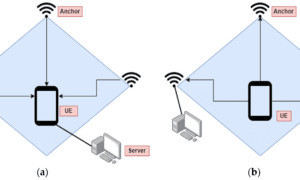The world of food manufacturing has undergone a dramatic transformation, with state-of-the-art production facilities leading the charge in innovation and efficiency. These high-tech plants are designed to meet the growing demands for quality, safety, and sustainability while pushing the boundaries of what is possible in food production.
Understanding what goes on behind closed doors in these facilities provides insight into how modern food products are made, and highlights the crucial role of technology in ensuring excellence. Here’s an exploration of the inner workings of advanced food production facilities and how tools like Keychain are revolutionizing the industry.
The Modern Production Facility: Key Features
- Advanced Automation and Robotics: Modern food production facilities are characterized by their extensive use of automation and robotics. These technologies are employed to streamline operations, increase efficiency, and ensure consistency. Automated systems handle everything from ingredient mixing to packaging, significantly reducing the need for manual labor and minimizing the risk of human error. Robotics can precisely measure and mix ingredients, manage assembly lines, and even conduct quality checks, all while operating around the clock.
- Precision Temperature Control: Temperature control is crucial in food production, affecting everything from ingredient mixing to storage. State-of-the-art facilities are equipped with advanced temperature control systems that ensure optimal conditions for each stage of production. This precision helps maintain the quality and safety of the products, whether it’s in cooking, cooling, or storing. These systems are often integrated with real-time monitoring technologies to quickly address any deviations.
- Integrated Quality Control Systems: Quality control is a cornerstone of modern food manufacturing. Advanced facilities use integrated systems to monitor and manage product quality throughout the production process. This includes automated inspection systems that check for defects or inconsistencies, and real-time data analytics that track production metrics. Such systems ensure that only products meeting rigorous standards reach consumers.
Sustainability in Modern Facilities:
- Energy Efficiency: With increasing awareness of environmental impacts, food production facilities are focusing on energy efficiency. This includes implementing energy-saving technologies such as LED lighting, high-efficiency HVAC systems, and advanced machinery that reduces power consumption. Facilities are also exploring renewable energy sources to further lower their carbon footprint.
- Waste Management: Effective waste management practices are essential for sustainability. Modern facilities use advanced waste sorting and recycling systems to minimize waste. Organic waste is often repurposed for composting or biogas production, while recyclable materials are processed to reduce landfill contributions. Additionally, facilities strive to minimize food waste through precise production planning and inventory management.
- Water Conservation: Water usage is another critical area of focus. Facilities are investing in technologies for water recycling and reuse to reduce overall consumption. Advanced water treatment systems ensure that wastewater is properly managed and does not impact the environment. These practices help conserve water resources and maintain sustainability.
How Keychain Enhances Modern Production Facilities:
- Streamlined Production Management: Keychain offers advanced tools for managing and optimizing production processes. This includes features for tracking ingredient sourcing, monitoring production schedules, and managing inventory. By providing real-time data and insights, Keychain helps facilities streamline their operations and enhance overall efficiency.
- Enhanced Quality Assurance: With Keychain, facilities can implement robust quality assurance processes. The platform provides solutions for real-time monitoring and analytics, enabling facilities to detect and address quality issues promptly. This ensures that products consistently meet high standards and regulatory requirements.
- Supply Chain Transparency: Keychain supports supply chain transparency by offering tools for tracking the origin and movement of ingredients. This visibility helps facilities ensure that their sourcing practices are ethical and sustainable. It also enables better management of supply chain risks and enhances overall product integrity.
Case Studies: Innovations in Production Facilities
- Case Study: Plant-Based Foods: A leading producer of plant-based foods has leveraged state-of-the-art production technologies to meet the growing demand for alternative proteins. The facility utilizes advanced automation and robotics to process and package products efficiently. Precision temperature control systems ensure the quality of plant-based ingredients, while integrated quality control systems maintain high standards.
- Case Study: Beverage Manufacturing: In the beverage industry, a top manufacturer has adopted energy-efficient technologies to reduce its environmental impact. The facility employs renewable energy sources and advanced water recycling systems to minimize its carbon footprint. Automated systems manage production and packaging, ensuring consistency and quality in every batch.
Future Trends in Food Production Facilities:
- Smart Manufacturing: The future of food production facilities lies in smart manufacturing, where data-driven technologies and the Internet of Things (IoT) are used to optimize operations. Smart sensors and connected devices will provide real-time insights into production processes, enabling facilities to make data-driven decisions and further enhance efficiency.
- Advanced Robotics and AI: Robotics and artificial intelligence (AI) will continue to advance, offering new possibilities for automation and precision in food manufacturing. AI-powered systems will improve predictive maintenance, optimize production scheduling, and enhance quality control.
- Sustainable Practices: As sustainability becomes increasingly important, facilities will adopt more innovative practices to reduce their environmental impact. This includes developing new technologies for waste reduction, energy conservation, and resource management.
Final Thoughts
State-of-the-art food production facilities are at the forefront of innovation, blending advanced technologies with a commitment to quality and sustainability. From automation and robotics to precision temperature control and integrated quality systems, these facilities are designed to meet the highest standards of efficiency and excellence.
Platforms like Keychain play a vital role in enhancing these operations, offering tools for streamlined production management, enhanced quality assurance, and supply chain transparency. As the industry continues to evolve, the focus will remain on integrating passion with precision, driving advancements that shape the future of food manufacturing.
Read More From Techbullion And Businesnewswire.com



































